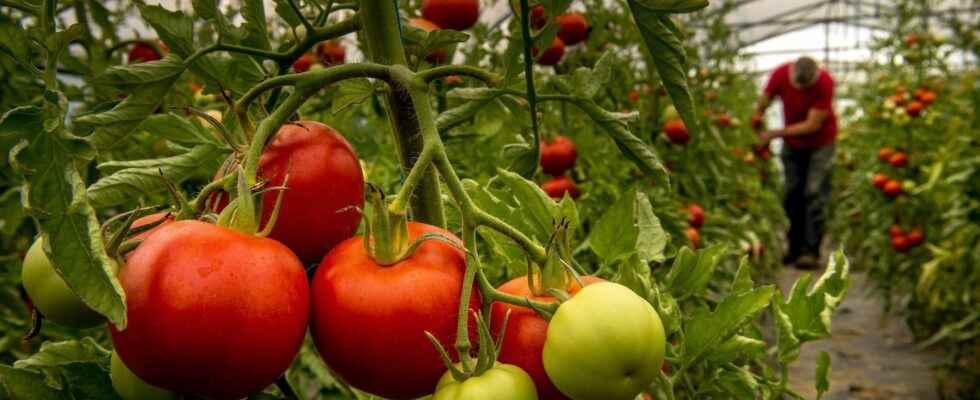It is not known whether the British government encourages, as in France, its population to eat five fruits and vegetables a day, but it is likely that this mission will be made difficult by the current context. At the end of February, the ranges of fruit and vegetables offered by supermarkets in the United Kingdom are indeed limited. According to figures from catering service provider Reynolds, cited by the Guardian, the pepper harvest is down 70% in comparison to last year, that of cucumbers by 50% and that of tomatoes by 20%. In order not to risk a shortage, major supermarket chains such as Tesco or Asda announced on Wednesday that they would cap the number of packets of tomatoes, peppers and cucumbers at three per person.
Weather and government in the viewfinder
To explain this phenomenon, we must turn to Spain and Morocco, the two countries from which the United Kingdom imports, in winter, 95% of the tomatoes and 90% of the lettuces that it cannot grow, its production generally starting at the beginning of April. However, the cold weather of its last two weeks and a warmer than usual fall have both undermined the harvest. For example, the Spanish region of Murcia, where 80% of vegetables imported across the Channel are produced, has been severely affected by these effects of climate change. As for imports from Morocco, they are undermined by snowstorms and a capricious Mediterranean Sea, two environmental phenomena preventing both the production of foodstuffs and their proper delivery.
These rationings are added to the record rise in the price of food products, which reached, according to the Kantar Institute, 16.7% in January. Moreover, the effects are self-sustaining, because “the more shortages there are, the more food price inflation will increase,” National Farmers Union president Minette Batters told the BBC. At first sight, therefore, nature is responsible for the situation. But some voices denounce this situation of dependence, and the inability of the United Kingdom to be able to count on itself. Usually, British farmers still grow tomatoes and cucumbers in the winter, in large greenhouses in the Kent region. But due to the drastic increase in the energy bill – a consequence of the war in Ukraine – and the lack of government support, they ceased, or reduced, their activity. The problem also extends to apples and pears, which could be the next fruit victims of rationing.
Faced with the explosion in production costs (+23%), not followed by a proportional increase in income from sales to supermarkets (less than 1% increase), farmers only planted part of the number number of trees needed for optimal production (330,000 apple trees out of the 480,000 planned). In the Guardianthe director of the British Apples and Pears trade association, Ali Capper, said the future of UK apple and pear farming was “seriously in question”.
In addition to the weather conditions and the lack of government involvement, Brexit is presented as the third culprit for the fiasco. On BBC Radio 4, Justin King, former chief executive of Sainsbury’s, the UK’s second-largest supermarket chain, said the agricultural production sector had been “significantly disrupted by Brexit”. Leaving the European Union notably limits the arrival of foreign workers, who until then constituted an essential workforce in the greenhouses.
